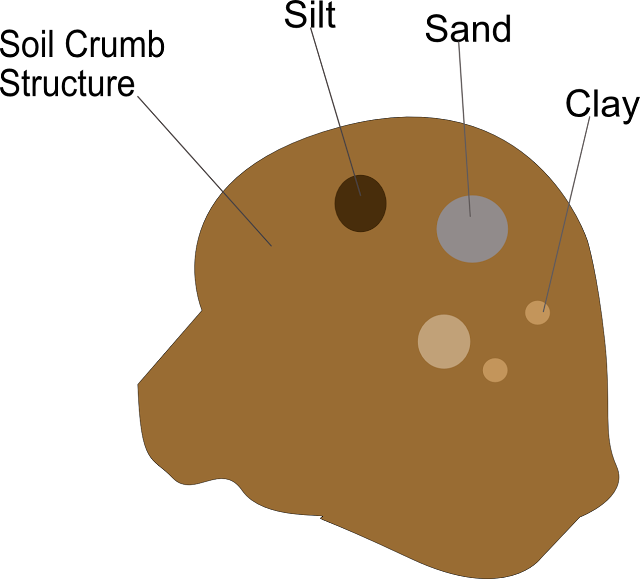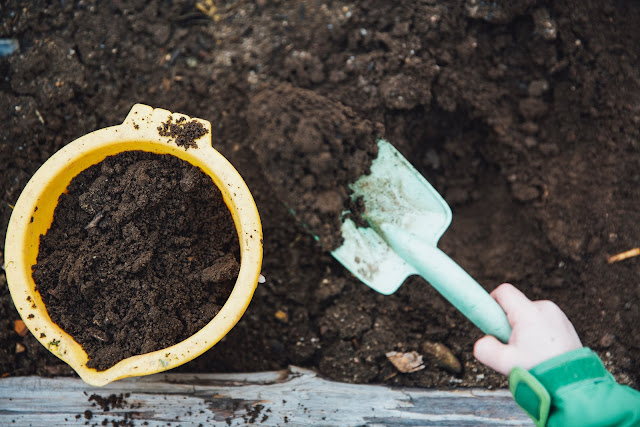So you want to have a nice garden with healthy plants. You want to enjoy gardening without too much physical works, time or money spent (Who doesn't want it?).
The smartest way is to apply compost, because compost improves your soil in two ways:
1.Compost makes soil crumb structure
Compost creates the soil crumb structure. If your soil is sandy, sand particles can attach to the compost , forming a crumb structure and create more space to hold water and air. Same when you have clayey or silty soil. Compost will amend soil texture no matter which type of soil you have.
 |
| Sand, clay and silt can stick to compost and form soil crumb structure |
 |
| Soil crumbs create more micro spaces in between of each other, holding more water and air |
Soil crumbs will store water and air in between of each other. Plants need air and water to grow their roots. Strong roots not only ensure plants to get the nutrients they need from the soil, but also help them resist pathogen and disease.
2. The biological activities by restoring soil food web:
These benefits are even greater than forming soil crumb structure. Part of compost are pre-mature humus with bacteria still working on that. Bacteria is the food for many other soil animals, such as nematodes, protozoa and arthropods, so they will be attracted to the soil with constant compost supply. More animals will live, move and be fed in the soil.
Animals living in soil, from microbe to earthworms will make healthy soil. Bacteria holds up nitrogen in their bodies and produce slime aggregating soil particles together.When they die, the nitrogen will be released to the soil for plants to uptake.
 |
| Bacteria are nitrogen storage bags in the soil. They produce "Slime" to aggregate soil particles |
Larvae or nematodes who feed on bacteria move in the soil create more pore to hold water and air.
 |
| While larvae and nematodes live in the soil, they move to create micro-pores |
Millipedes and bugs break down organic matters into small pieces for bacteria and fungi to decompose them.
 |
| Millipedes, centipedes or bugs eat and break organic matter into small pieces for bacteria to furthur decompose |
Together, they form "soil food webs." The beloved, ultimate compost machine, earthworm, is just a small part of the soil food web. When the organic matter can't be decomposed anymore by bacteria is humus. It will hold more ions and water and enrich the fertility of the soil.
If your garden soil has been exposed to chemical herbicide, pesticide or commercial fertilizer, compaction or rototiller, chances are the soil microbe or animals are killed. If that's your case, the tool to restore the garden soil is compost.
When you compost, you need to build at least 1 cubic meter big composting pile with the chopped ingredients of carbon and nitrogen ratio 3:1 by volume, or 30 : 1 by weight. After the pile's setting up, you need to constantly turn and water it. Composting pile sometimes attracts bugs, flies, animals and complaints from neighbors. Composting does have a learning curve. Many beginners fail, including me.
I personally recommend you the smartest way to have steady compost supply to your garden, is by using iComposteur.
 |






0 Comments